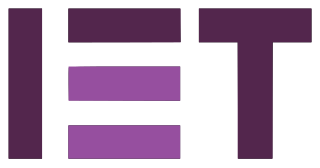
The Institution of Engineering and Technology (IET) is a multidisciplinary professional engineering institution. The IET was formed in 2006 from two separate institutions: the Institution of Electrical Engineers (IEE), dating back to 1871, and the Institution of Incorporated Engineers (IIE) dating back to 1884. Its worldwide membership is currently in excess of 158,000 in 153 countries. The IET's main offices are in Savoy Place in London, England, and at Michael Faraday House in Stevenage, England.

Tennis Australia Limited is the governing body for tennis in Australia. It is owned by Australian states and territories. The association organizes national and international tennis tournaments including the Australian Open, Australian Open Series, Davis Cup, Billie Jean King Cup, ATP Cup, and Australian Pro Tour. In addition, the association takes the responsibility to facilitate tennis at all levels from grassroots to elite development. Tennis Australia's state-based member associates carry out the promotion, management, and development of tennis within Australia. Other than that, it administers amateur tournaments and youth development programs.
The Australian Computer Society (ACS) is an association for information and communications technology professionals with 40,000+ members Australia-wide. According to its Constitution, its objectives are "to advance professional excellence in information technology" and "to promote the development of Australian information and communications technology resources".
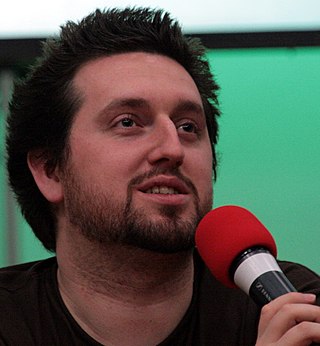
Jeff Waugh is an Australian free software and open source software engineer. He is known for his past prominence in the GNOME and Ubuntu projects and communities.

Pia Andrews, born 1979, is an open government leader and the Special Advisor, Digital & Client Data Workstream Lead for Employment and Social Development Canada (ESDC).
John Makepeace Bennett was an early Australian computer scientist. He was Australia's first professor of computer science and the founding president of the Australian Computer Society. His pioneering career included work on early computers such as EDSAC, Ferranti Mark 1* and SILLIAC, and spreading the word about the use of computers through computing courses and computing associations.
Trevor Pearcey was a British-born Australian scientist, who created CSIRAC, one of the first stored-program electronic computers in the world.

Sonja Bernhardt is an Australian information technology industry figure involved in mentoring and role model programs for women in IT. She was founder and Inaugural President of WiT in Queensland in 1997 and co founder and Inaugural President of AWISE in 2005, not for profit industry groups running community based projects and programs to encourage women and girls into technology careers. She is responsible for the 2007 Screen Goddess IT Calendar, IT's Million $ Babes Awards and Doing IT Around the World.
Secret Lab is an independent computer game developer based in Hobart, Australia. They are best known for their work on Night in the Woods, the Qantas Joey Playbox games, the Australian Broadcasting Corporation Play School Play Time and Art Maker games.

Lars Eilstrup Rasmussen is a Danish computer scientist, technology executive, and the co-founder of Google Maps. He was later the director of engineering for Facebook in London.

Eway is a global omnichannel payment provider. The company processes secure credit card payments for merchants. Eway works through eCommerce.
Pearcey is a surname. Notable people with the surname include:
Malcolm John Bryce was an Australian politician, who served as a Labor Party member of the Legislative Assembly of Western Australia from 1971 to 1988, representing the seat of Ascot. He was deputy leader of the Labor Party from 1977 to 1980 and from 1981 to 1988, and served as deputy premier under Brian Burke.

Ryan Junee is an Australian-American entrepreneur. He is the founder of Parsable and is based in San Francisco.
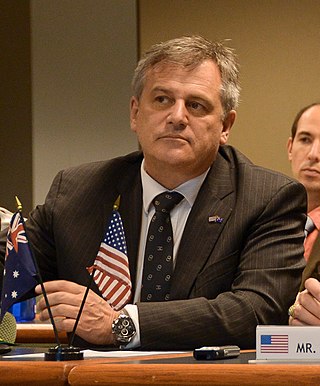
Alexander ‘Alex’ Zelinsky, is an Australian computer scientist, systems engineer and roboticist. His career spans innovation, science and technology, research and development, commercial start-ups and education. Professor Zelinsky is Vice-chancellor and President of the University of Newcastle joining the university in November 2018. He was the Chief Defence Scientist of Australia from March 2012 until November 2018. As Chief Defence Scientist he led defence science and technology for Australia's Department of Defence.
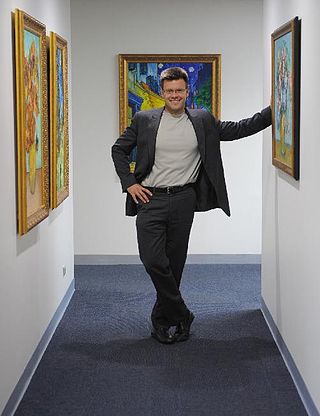
Matthew Michalewicz is an Australian entrepreneur and author with experience in the fields of technology, commercialization and supply chain management. He is the co-author of a number of books and publications, some of which have been adapted into courses on problem solving in colleges and universities. He is the co-founder of NuTech Solutions, SolveIT Software, and Complexica, companies that he started with his father Zbigniew Michalewicz. In 2012, SolveIT Software Pty Ltd, was acquired by Schneider Electric.
Data#3 Limited (DTL) is a publicly traded information and communications technology (ICT) company. Data#3's head office is located in Brisbane, but the business operates across Australia.
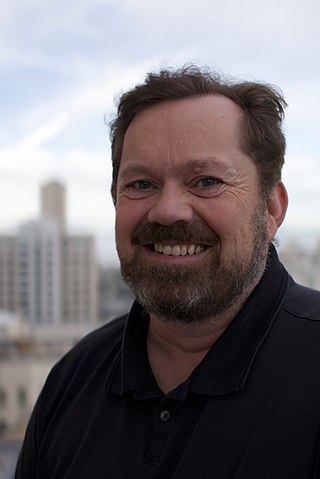
Jens Eilstrup Rasmussen is a Danish software engineer, technology executive, and co-founder of Where 2 Technologies which led to Google Maps.

Adrian Di Marco is an Australian entrepreneur and businessman. He is the founder and Executive Chairman of TechnologyOne, Australia's largest enterprise software company.
Fiona Elizabeth Balfour is an Australian business executive in the field of information technology. She has been named Chief Information Officer of the Year in Australia four times: 2003, 2004, 2005, and 2006. In 2006 she was awarded the Pearcey Award for distinguished lifetime achievement and contribution to the development and growth of Australian IT professions, research and industry. In 2017 she was appointed to the board of the Western Sydney Airport Corporation by Urban Infrastructure Minister Paul Fletcher. In May 2021 she was appointed to the board of the Australian Broadcasting Corporation by communications minister Paul Fletcher against the recommendations of an independent panel.











